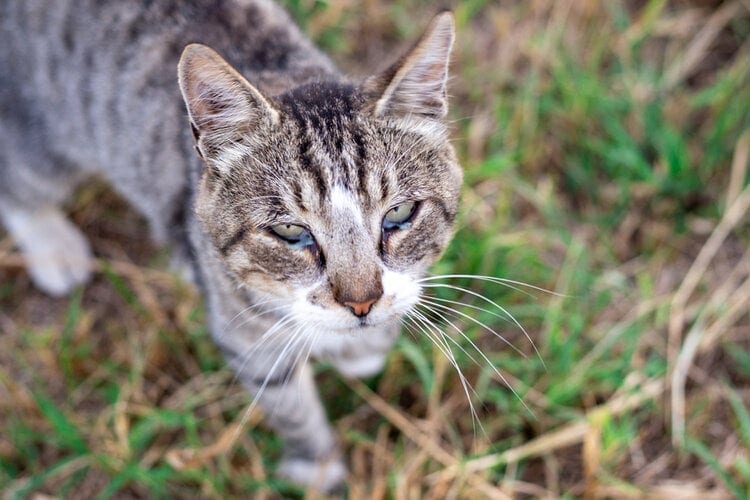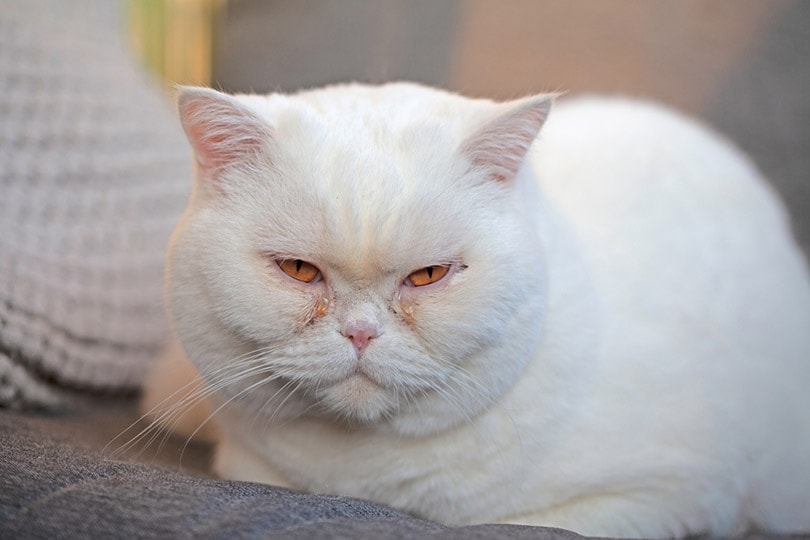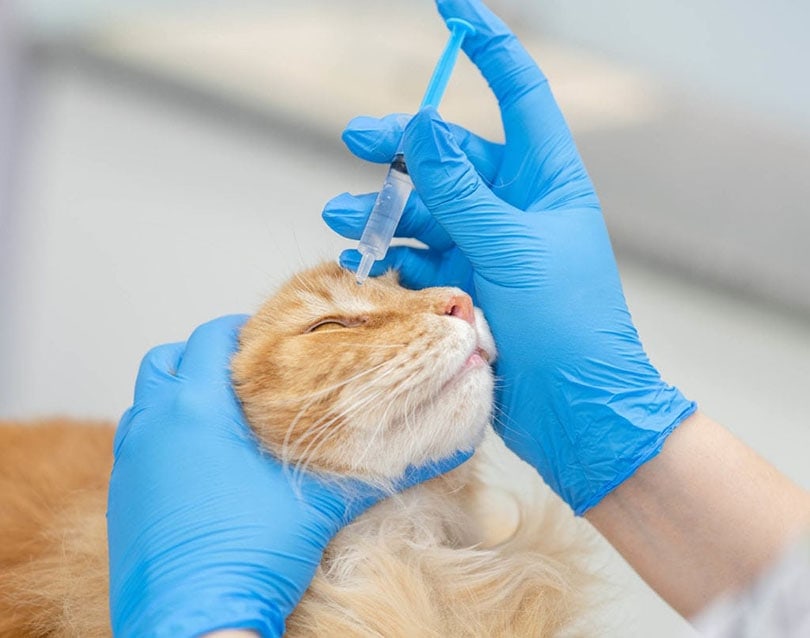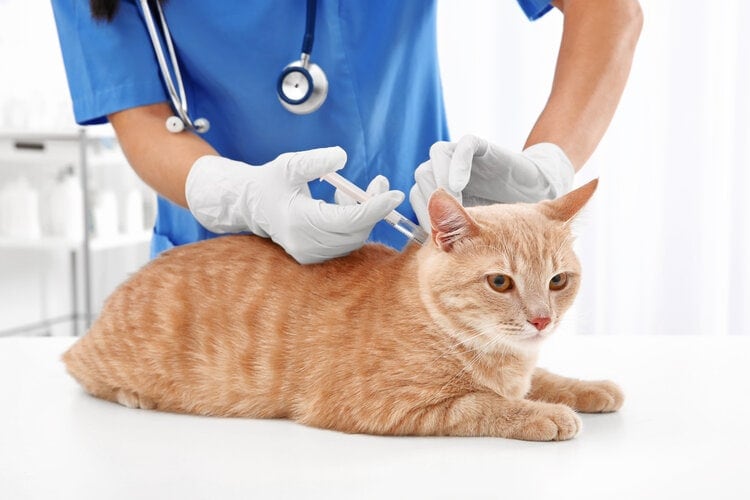Cat Eye Discharge: Understanding What is Normal (Vet Answer)
By Dr. Paola Cuevas, MVZ (Vet)
Updated on

Just as in the case of human eyes, a cat’s eyes are physically protected with eyelids. What you probably didn’t know is that while humans have only two eyelids, cats have a third eyelid called the nictitating membrane. Likewise, just as in the case of humans, cats have glands that produce tears and in addition, cats’ eyes have specialized glands that produce mucoid and oily substances.
The combination of these glandular secretions known as “tear film” has the function of lubricating and protecting the eye, keeping it moist, and washing off any dirt, irritating substances, small foreign objects, bacteria, etc.
In this way, tears are constantly produced and then drained into some ducts in the lower corner of the eyes, near the nose. This is how normally tears are drained into the nose and throat without spilling over the eye.

Is Eye Discharge Normal in Cats?

Eye discharge is not a disease itself but it might be a symptom. If you have noticed eye discharge on your cat only once this is most likely caused by something irritating the eyes. Tears are produced at a faster rate to try to wash off the irritation. This is when we see watery eye discharge. Once the irritation cause is removed, eye discharge should stop.
Occasional mucoid discharge, especially after sleep, is also normal. You can use a clean cotton ball and lukewarm drinking water to clean the eye. Be gentle and use a fresh cotton ball for each eye. If everything is normal, after cleaning the eye you should not see any more discharge for at least a few days.
On the other hand, if you have noticed the fur under your cats’ eyes constantly looks moist or wet, or if the eyes have a mucoid or crusty-looking recurrent discharge around; this is most likely an indication of a medical issue. In this case, you should bring your cat to the veterinarian to have its eyes checked. The treatment will depend on what is the medical problem causing the eye discharge.
- If you see any signs of inflammation of the eyelids; they may look red or swollen.
- The cat is squinting.
- The cat is blinking a lot.
- The cat is rubbing its eye with a paw or against surfaces.
What Can Cause Eye Discharge In Cats?
- Upper respiratory viral or bacterial infections.
- Conjunctivitis.
- Allergies.
- Abnormally growing eyelashes irritating the eye.
- Corneal ulcer.
- Foreign objects or eye injuries.
- Anatomical abnormalities.
- Glaucoma or increased pressure of the eye.
- Insufficient drainage or blockage of the nasolacrimal ducts.

 How Will the Veterinarian Treat My Cat?
How Will the Veterinarian Treat My Cat?
Because eye discharge is not a disease but a symptom, the veterinarian will have to perform a good examination of your cat’s eyes to diagnose what is causing the discharge. In some cases, it is possible that besides the visual examination, the veterinarian will have to collect samples and perform a diagnostic test with a green substance called fluorescein.
Sometimes to successfully achieve checking and sampling the cat’s eyes, or to perform certain possibly needed procedures to treat the problems, the cat might need to be sedated or even anesthetized.

The treatment will depend on the underlying cause of the discharge, from the application of eye drops or eye ointments to some invasive medical procedures or even surgery. Your veterinarian will let you know what is the best solution for your cat.
- Always follow the veterinarian’s advice and prescription.
- Never stop the treatment before the recommended course even if the problem seems to disappear.
- Never apply any product to your cat’s eyes without discussing it with the vet. Even if the product claims to be for cleaning cat eyes, always consult with the veterinarian.
- If you notice that the problem persists with no signs of improvement after 72 hours of initiating treatment, please let your veterinarian know. In some cases, a change of treatment might be needed.
- Never use old eye drops from previous treatments, eyedrop bottles should be discarded 15 days after opening the seal. Also, consider the possibility of something different affecting the eye.
- Keep in mind that some brachiocephalic cats (such as Persians), due to the anatomy of their noses, are not able to properly drain tears. They are also more susceptible to developing blockages. Some might continue to have a tear discharge or recurrent episodes of it. If this is the case, discuss with your veterinarian about what is the best way to manage the condition and learn to distinguish a cosmetic issue due to tear staining from a significant health problem.

Final Thoughts
The tear film has a protective function in your cat’s eyes and the occasional eye discharge is normal. If the cat’s eyes have recurrent discharge, this is a sign of an underlying medical issue and as a good cat owner, you should bring your pet in for a veterinary check.
See also:
- Why Do Cats’ Eyes Glow in the Dark? Science-Based Facts & FAQ
- Why do Cats’ Pupils Get Big? Learn the Meaning of Feline Eye Changes
Featured Image Credit: Natalya Kokhanova, Shutterstock

 How Will the Veterinarian Treat My Cat?
How Will the Veterinarian Treat My Cat?








